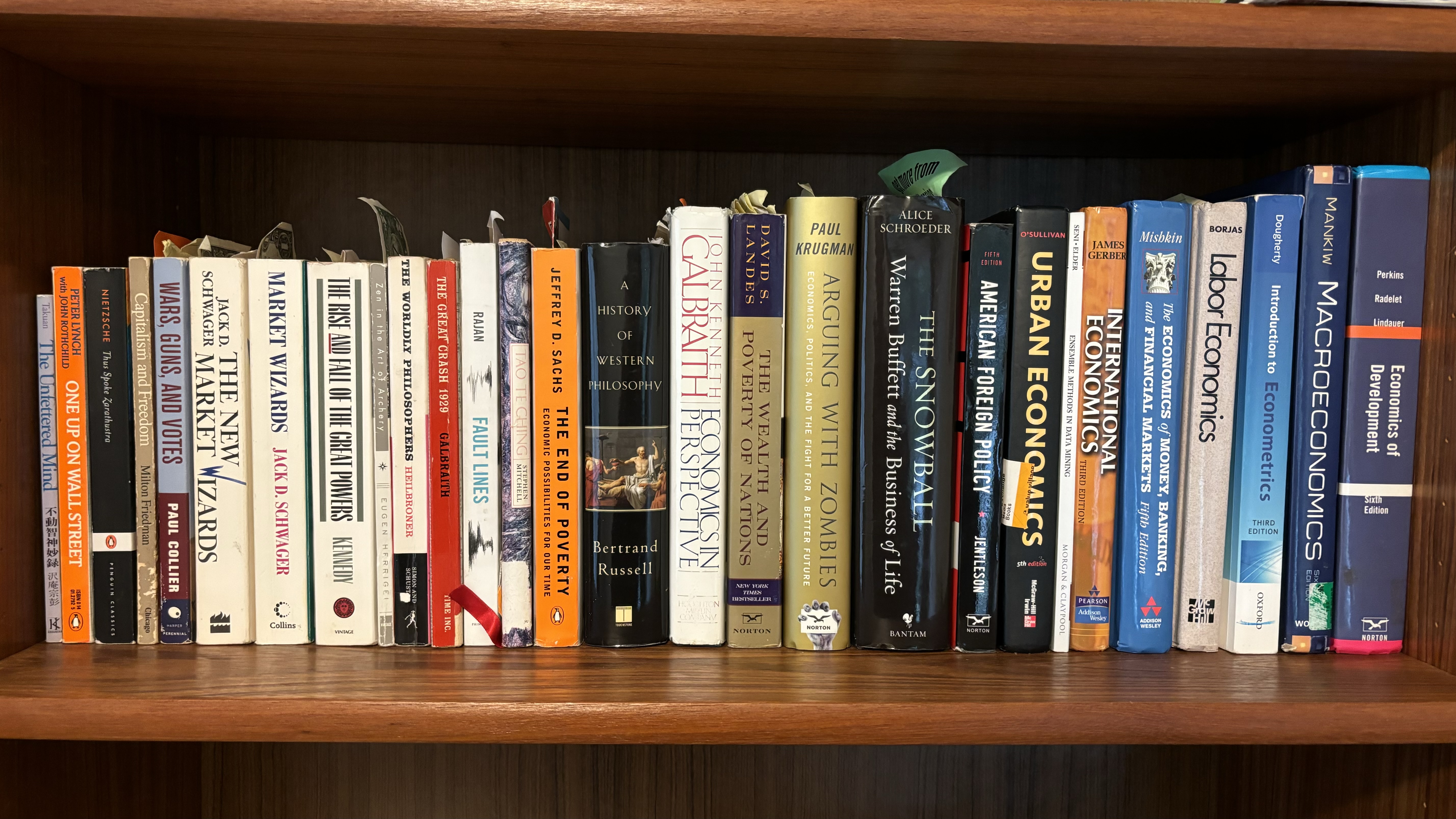Can you beat ARIMA at forecasting time series?
In my time series forecasting class I didn't exactly believe in the power of simple ARIMA models. I always thought I could simply draw a line and get about the same accuracy. Well it turns out
ARIMA is often better than me, but more importantly in my opinion unbiased. I made a simple game using real stock price data to try to draw a line that would beat an autofitted ARIMA model at forecasting
10 periods into the future.

My Bookshelf & Books I like

I have a very strong preference for books that are old, challenging to read, esoteric, and which do not make sense the first (or even third) time I read them. What I enjoy most about reading is trying to understand what is happening in the author's head rather than what their words are saying. It is especially hard to convey abstract ideas in writing so I believe that even with the best authors there is always deeper meaning or truth than what is evident. Here are some of my favorites:
Zen in the Art of Archery, Eugen Herrigel
The Unfettered Mind, Takuan Soho
Beyond Good and Evil, Friedrich Nietzsche
The New Market Wizards, Jack Schwager
Honorable Mention: Extreme Ownership, Jocko Willink A great book on leadership